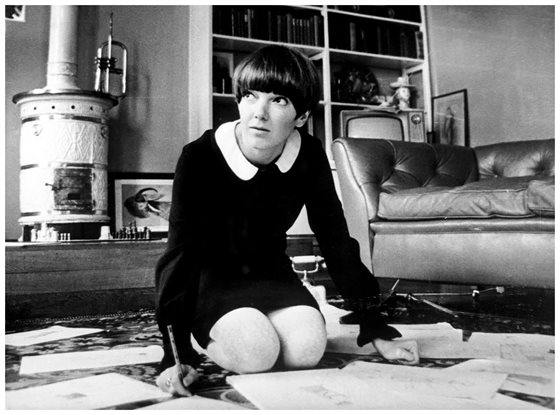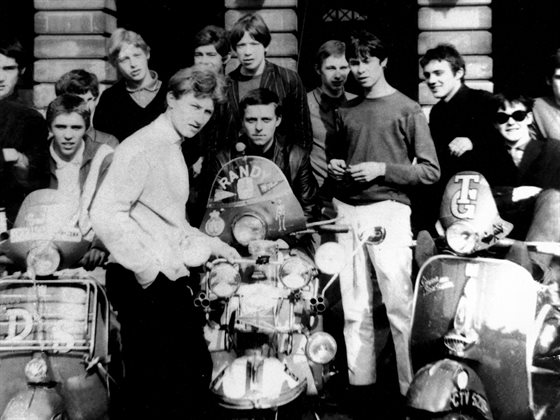A fashion expert at De Montfort University Leicester (DMU) is helping to tell the untold stories of the Mod revolution in Leicester.
Dr Jenny Gilbert, senior lecturer in Design Cultures at DMU, will be introducing key figures from the Midlands Mod fashion movement at New Walk Museum, Leicester, on Sunday.

It’s all part of the citywide celebration of all things Mod called Shaping a Generation. An exhibition opens at New Walk this weekend, based upon Leicester author Shaun Knapp’s book Mods: Two City Connections, which also celebrates the 40th anniversary of the The Who’s cult film Quadrophenia.
Classic scooters, re-created nightclubs like the city’s Il Rondo and unpublished images of Mod life in Leicester and Nottingham will form part of the exhibition, alongside accompanying events such as films and talks via Soft Touch Arts.
Dr Gilbert, Senior lecturer in Design Cultures, will be in conversation with Leicester vintage fashion collector Peter Feely and Sixties ‘Queen of the Mods’ Gill Evans Catling about the fashions and the European influences behind the trends such as Italian cinema.
She said: “We overlook the fact that a revolution was happening not just in the capital, it was across the country. This was happening here in Leicester as well and that’s really exciting, and I think it’s about time that history began to recognise that the 1960s happened not just in London it happened everywhere.”
RELATED NEWS:
* Interested in fashion? Book onto our next open day
* Fashion students kick off partnership between DMU and Cultural Quarter
* DMU student Tara works for Hugo Boss
The Mod movement was defined by the clothes worn by its followers. Made-to-measure suits, designing and making their own clothes, the era was one of individualism rather than off-the-peg garments. The term mod came from modernist.
Star designers such as Mary Quant came to embody the era with clothes designed for the very modern woman.
“It’s a move towards a much more streamlined, simple and arguably much more elegant way of dressing,” said Dr Gilbert. “It’s rooted in the idea of dandyism, so the idea that you can be the best-dressed person in the room but also the most simply dressed person in the room.
“Whenever a designer sends a mini skirt down a catwalk, that’s a direct homage to Mary Quant and the early 1960s,” said Dr Gilbert. “When we talk about modernism, it’s this link with the urban, the rise of the city. Mary Quant designed clothes that were designed for the people who were living in these new vastly expanding urban spaces.
“On Sunday, we have Peter Feely, who is Leicester local and expert on men’s fashion – in particular, from the 1960s. Also I’ll be talking to Gill Evans Catling, who is arguably the Queen of the Mods. Her and her husband they really pioneered the Mod Look in the early 1960s and she made a lot of her own clothes as well.”

The exhibition explores Mods from the perspective of the young people from Leicester and Nottingham. “The exhibition concentrates on the social, financial and creative freedom that most young people from the day enjoyed,” said Shaun Knapp. “It has a focus on Mod fashion, music, individuality, transport, drug use, gender and race, anti-social behaviour and legacy, with the majority of the stories being told for the first time.”
Mods: Shaping a Generation exhibition, takes place at New Walk Museum and Art Gallery, Leicester, opens tomorrow until 30 June. Free admission. For further details, visit www.shapingageneration.co.uk
• See Dr Gilbert in conversation with Peter Feely on Sunday at 11am and with Gill Evans Catling at 12. Admission is free but booking a place is advised. For more details, click here
Posted on Friday 12 April 2019